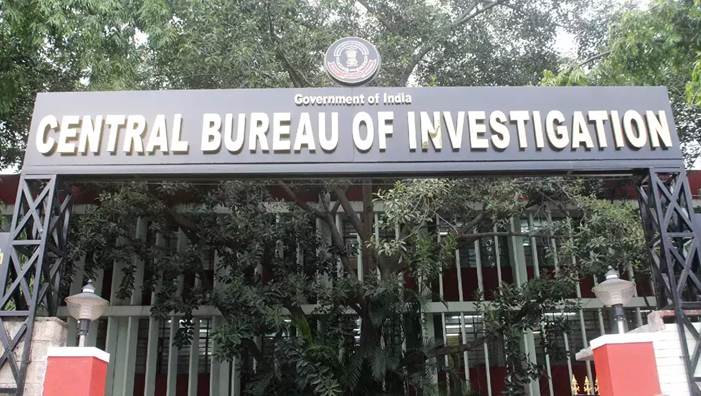Description

Copyright infringement not intended
In News
- According to the annual report of the Central Vigilance Commission (CVC), The Central Bureau of Investigation (CBI) recorded a conviction rate of 67.56% in 2021 as compared to 69.83% in 2020.
Central Vigilance Commission
- It is the main agency for preventing corruption in the Central government.
- It was established in 1964 by an executive resolution of the Central government.
- It was established based on the recommendations by the Santhanam Committee on Prevention of Corruption (1962–64).
- Initially, the CVC was neither a constitutional body nor a statutory body.
- In 2003, the Parliament enacted a law granting statutory status to the CVC.
- CVC is a multi-member body consisting of a Central Vigilance Commissioner (chairperson) and not more than two vigilance commissioners.
- They are appointed by the President of India by warrant under his hand and seal on the recommendation of a three-member committee;
- The prime minister is its head.
- The Union Minister of Home Affairs.
- The Leader of the Opposition in the Lok Sabha.
- The President can also remove the Central Vigilance Commissioner or any vigilance commissioner on the ground of proven misbehavior or incapacity.
Functions
- Inquiry or investigation is to be conducted into any complaint against any official belonging to the below-mentioned category of officials wherein it is alleged that he has committed an offence under the Prevention of Corruption Act, 1988.
- Give directions to the Delhi Special Police Establishment to discharge the responsibility entrusted to it under the Delhi Special Police Establishment Act, 1946.
- The Union Government is required to consult the CVC in making rules and regulations governing the vigilance and disciplinary matters relating to the members of Central Services and All-India Services.
- The Central Vigilance Commissioner is also the Chairperson of the two Committees, on whose recommendations the Central Government appoints the Director of the Delhi Special Police Establishment and the Director of Enforcement.
- Present annually to the President a report on its performance.
- The President places this report before each House of Parliament.
- Jurisdiction
- Members of All India Services serving in connection with the affairs of the Union and Group A officers of the Central Government.
- Officers of the rank of Scale V and above in the Public Sector Banks.
- Officers in Grade D and above in Reserve Bank of India, NABARD and SIDBI.
- Managers and above in General Insurance Companies.
- Senior Divisional Managers and above in Life Insurance Corporation.

About Central Bureau of Investigation (CBI)
- The Central Bureau of Investigation (CBI) was set up in 1963 by a resolution of the Ministry of Home Affairs. Later, it was transferred to the Ministry of Personnel.
- The Special Police Establishment set up in 1941 was also merged with the CBI.
- The establishment of the CBI was recommended by the Santhanam Committee on Prevention of Corruption (1962–1964).
- The CBI is not a statutory body. It derives its powers from the Delhi Special Police Establishment Act, 1946.
- The CBI is the main investigating agency of the Central Government. It plays an important role in the prevention of corruption and maintaining integrity in administration.
- It also assists the Central Vigilance Commission and Lokpal.
- The CBI investigates crimes of corruption, economic offences and serious and organized crime other than terrorism.
- For Terrorism: The National Investigation Agency (NIA) has been constituted after the Mumbai terror attack in 2008 mainly for the investigation of incidents of terrorist attacks, funding of terrorism and other terror-related crime.
- CBI is headed by a Director. He is assisted by a special director or an additional director.
- The Central Government appoints the Director of CBI on the recommendation of a three-member committee consisting of;
- The Prime Minister as Chairperson.
- The Leader of Opposition in the Lok Sabha.
- The Chief Justice of India or Judge of the Supreme Court nominated by him.
Cases investigated by the CBI
- Anti-Corruption Crimes - Investigate cases under the Prevention of Corruption Act against Public officials and the employees of Central Government, Public Sector Undertakings, Corporations or Bodies owned or controlled by the Government of India.
- Economic Crimes - Investigate major financial scams and serious economic frauds, including crimes relating to Fake Indian Currency Notes, Bank fraud and Cyber Crime, Smuggling of narcotics, antiques, cultural property and smuggling etc.
- Special Crimes - Investigate seriously and organized crime under the Indian Penal Code and other laws at the requests of State Governments or on the orders of the Supreme Court and High Courts.
- Suo Moto Cases - CBI can suo-moto take up investigation of offences only in the Union Territories.
- The Central Government can authorize CBI to investigate a crime in a State but only with the consent of the concerned State Government.
- The Supreme Court and High Courts, however, can order CBI to investigate a crime anywhere in the country without the consent of the State.
https://epaper.thehindu.com/Home/ShareArticle?OrgId=G36A6RJ8L.1&imageview=0
https://t.me/+hJqMV1O0se03Njk9













